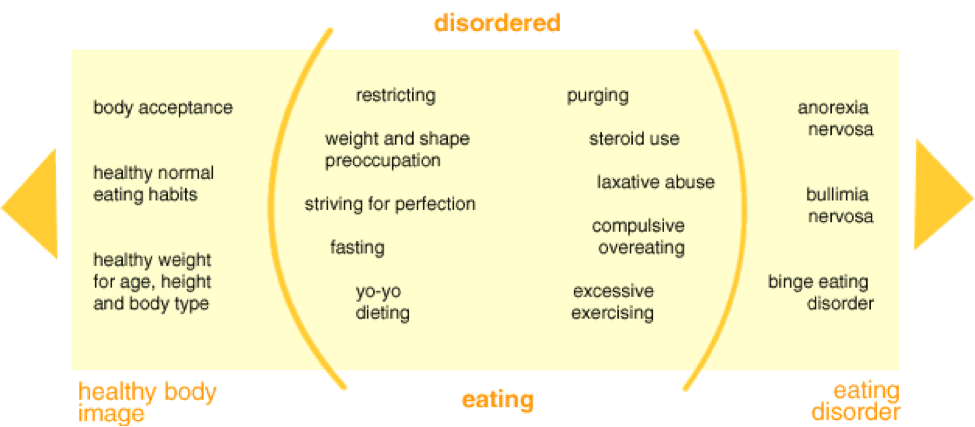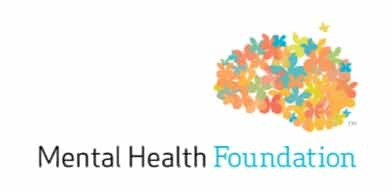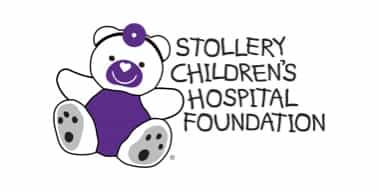Bulimia is an eating disorder that revolves around bingeing and purging cycles. Bingeing involves eating large amounts of food quickly. This might make you feel physically ill and anxious. This is followed by the need to purge. Purging can involve vomiting, holding yourself back from food, over-exercising, or using laxatives.
Bulimia is a serious psychological response to difficulties in your life. It might be triggered if you feel that parts of your life are out of control or if you have a lot of troubling emotions.
The exact cause of bulimia is unknown. Many factors could play a role in someone developing an eating disorder. These factors include genetics, biology, emotional health, expectations from society, and more.
- Biology. People with close family members who struggle with eating disorders may be more at risk of developing one. “Close family members” include siblings, parents, or children. This suggests that people’s genetics may have a role to play in whether they have bulimia. Being overweight as a child or teen may increase the risk.
- Psychological and emotional issues. Psychological and emotional challenges are closely tied with eating disorders. These concerns can include depression, anxiety or harmful drug use. People with bulimia may feel poorly about themselves. In some cases, past experiences and environmental stress may be factors as well.
- Dieting. People who diet are at higher risk of developing eating disorders. Many people with bulimia severely restrict calories between binges. This may trigger a need to overeat and purge again. Other triggers for bingeing can include stress, poor body self-image, and seeing or smelling certain foods.
Girls and women are more likely to have bulimia than boys and men. Other genders also experience bulimia but there is a lack of available information about how often this happens. Bulimia often begins in the late teens or early adulthood.
Bulimia can seriously damage your body, so it’s important to get help and find other ways of coping with stressors.
Here are some common symptoms for those with bulimia:
|
|
|
|
|
|
|
|
|
|
|
|
Bulimia is a serious condition, but there’s lots of help available.

Getting Help and Support
If you’re concerned about bulimia nervosa, you’re not alone.
Take the first step. Talk to someone you like and trust. This can be a teacher, relative, counsellor or friend. You can start by just asking some questions. Gathering information can help you ease into the conversation if you are not comfortable sharing details right away.
It’s really important to get help quickly. Bulimia can cause long-term damage to your body. Remember, bulimia can happen to anyone and is not your fault.
You could also go and talk to your doctor. They may refer you to Child and Adolescent Mental Health Services (CAMHS), where an expert on youth mental health can support you.
Our partner, EDSNA lists different options for support and treatment and describes options for getting help. Check them out here: Eating Disorder Support Network of Alberta (edsna.ca)
They also offer virtual workshops via Kickstand Connect, which you can learn about here. Sign-up for a free, virtual 1:1 mental health counselling or peer support session in the meantime.
Treatment of Bulimia
Treatment will likely start with finding out how much the bulimia is affecting your physical and mental health. Depending on how serious things are, treatment can include:
- 1:1 talking therapy.
- Group therapy
- Family therapy
- Working with a dietitian to help you return to healthy eating habits.
Bulimia can usually be treated in the community. If your symptoms are severe with serious health effects, you may need treatment in a hospital. Another option that is sometimes available is a day treatment program where you continue to stay at your own home but go to a group program every day to see your treatment team.
You’ll be supported to eat healthy amounts of food. You’ll also be empowered to explore your relationship with food and eating. This support can also help you determine what your healthy weight should be. Along with the mental health treatments, you may also be offered medication. Your team may include a psychiatrist who focuses on treating young people with eating disorders.
Sources:
Treatment – Eating Disorder Support Network of Alberta (edsna.ca)



